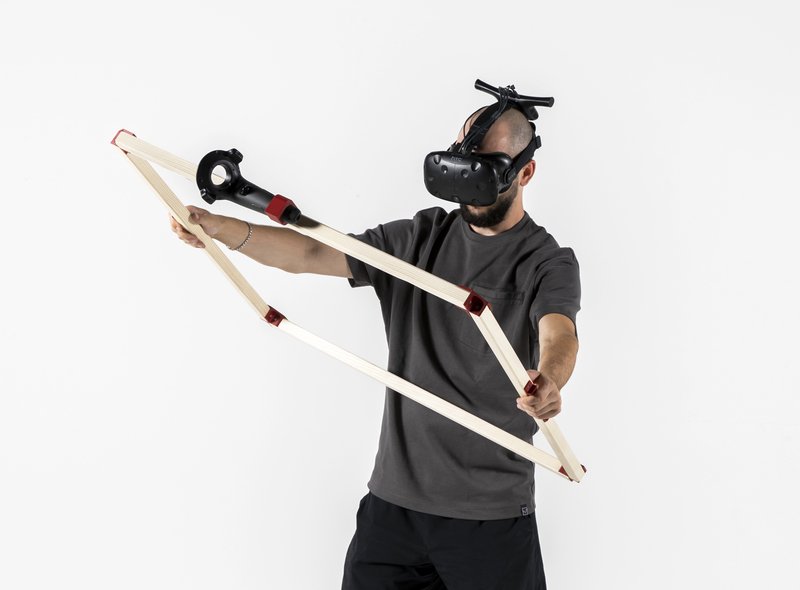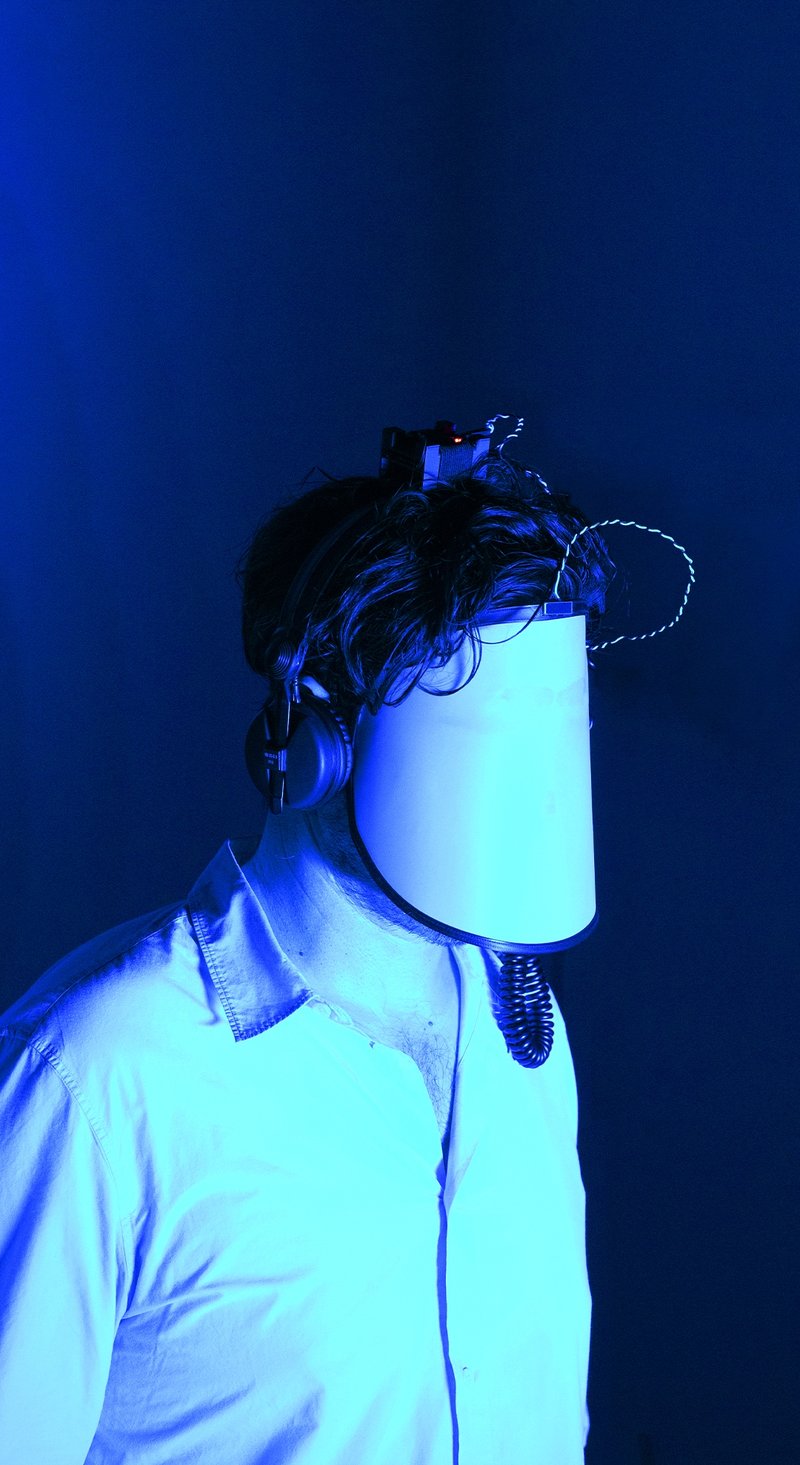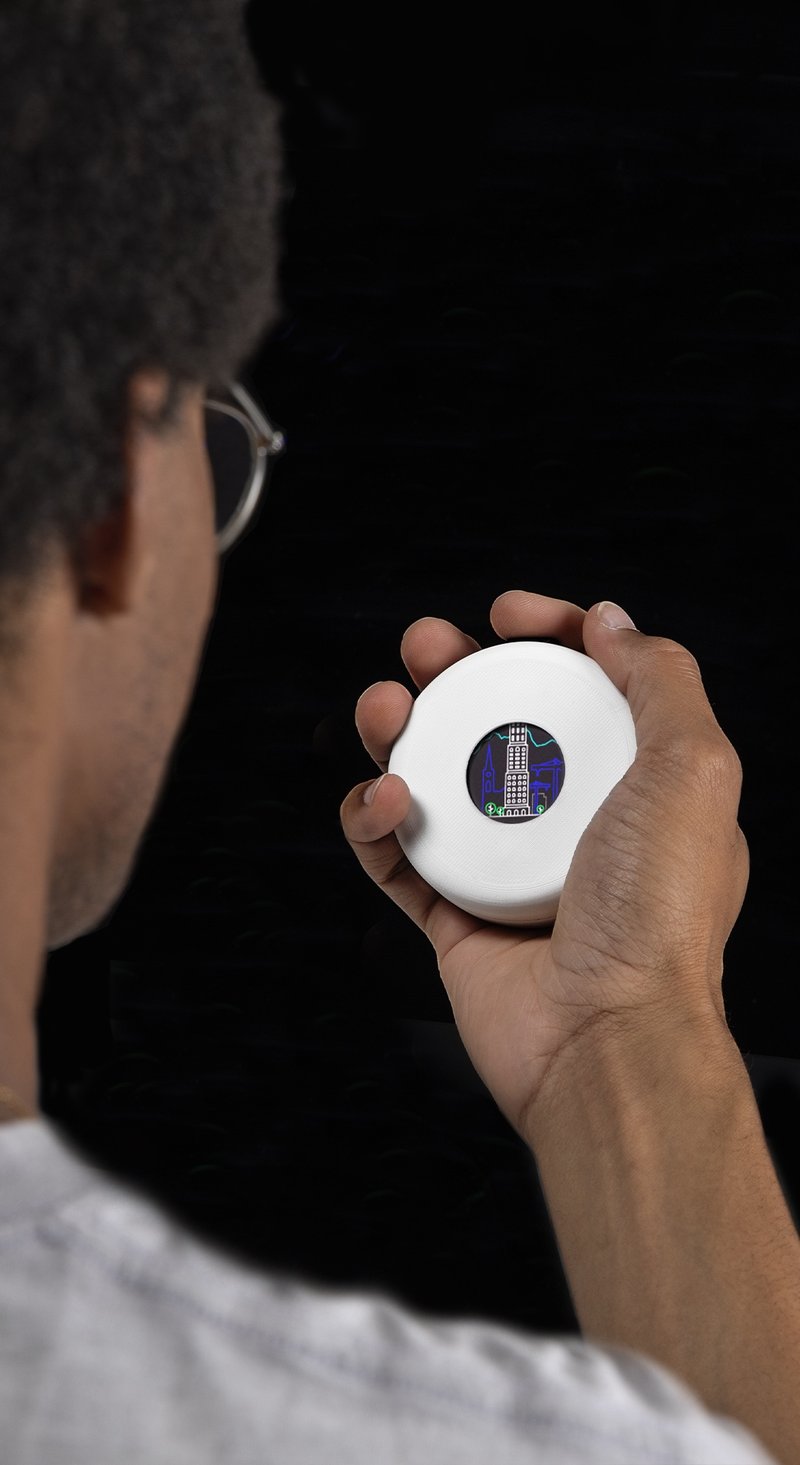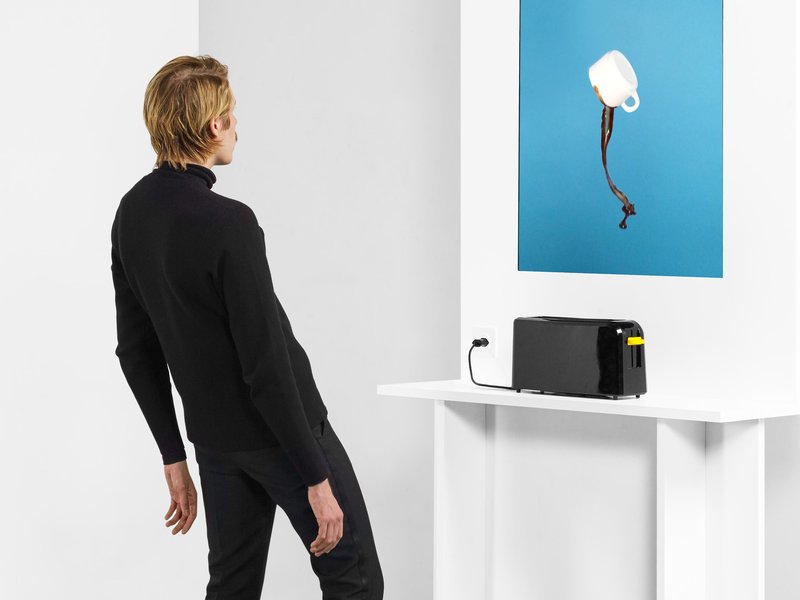
BA MEDIA & INTERACTION DESIGN
Kylan Luginbühl – FRAME-Lab
with Alain Bellet, Christophe Guignard, Gaël Hugo, Laura Nieder, Pauline Saglio
FRAME-Lab offers a series of immersive experiences that provide new ways of interacting with a virtual reality environment. The traditional controller is replaced by a physical frame that enables you to explore various worlds and functionalities. This new interface, both tangible and digital, can thus take the form of a shield, a portal to travel in time and space, or that of a parachute. This interface frame is offered to the community of makers as 3D files available online that anyone can transform and print at home.




